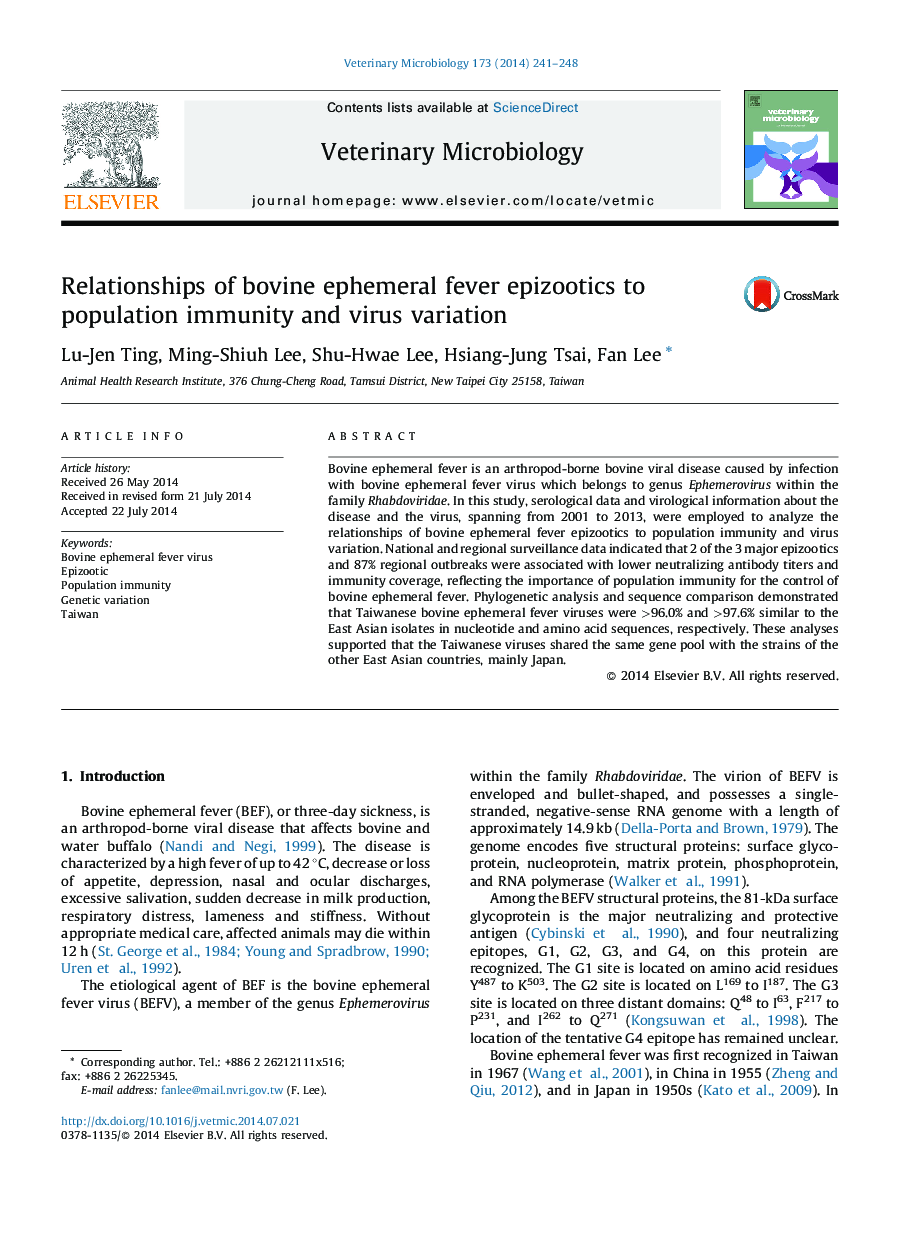| کد مقاله | کد نشریه | سال انتشار | مقاله انگلیسی | نسخه تمام متن |
|---|---|---|---|---|
| 5800230 | 1555357 | 2014 | 8 صفحه PDF | دانلود رایگان |
- It revealed the correlation of BEF epizootics to population immunity.
- Taiwanese BEFVs were varying but antigenically stable.
- East Asian countries shared the same gene pool of BEFVs.
Bovine ephemeral fever is an arthropod-borne bovine viral disease caused by infection with bovine ephemeral fever virus which belongs to genus Ephemerovirus within the family Rhabdoviridae. In this study, serological data and virological information about the disease and the virus, spanning from 2001 to 2013, were employed to analyze the relationships of bovine ephemeral fever epizootics to population immunity and virus variation. National and regional surveillance data indicated that 2 of the 3 major epizootics and 87% regional outbreaks were associated with lower neutralizing antibody titers and immunity coverage, reflecting the importance of population immunity for the control of bovine ephemeral fever. Phylogenetic analysis and sequence comparison demonstrated that Taiwanese bovine ephemeral fever viruses were >96.0% and >97.6% similar to the East Asian isolates in nucleotide and amino acid sequences, respectively. These analyses supported that the Taiwanese viruses shared the same gene pool with the strains of the other East Asian countries, mainly Japan.
Journal: Veterinary Microbiology - Volume 173, Issues 3â4, 10 October 2014, Pages 241-248
